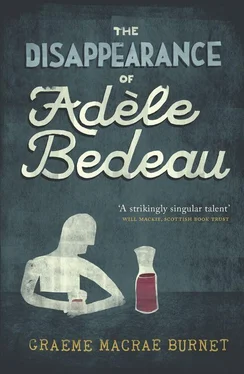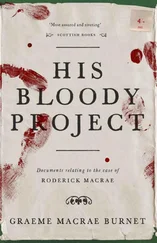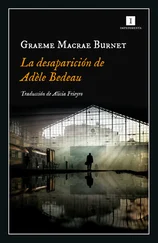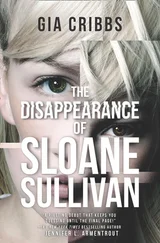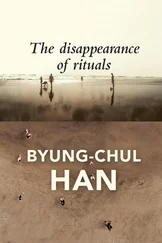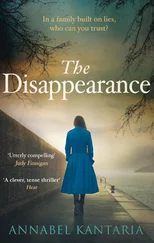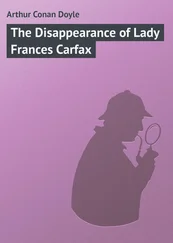Gorski and Lambert parted in the street. Lambert wished him luck with the case and told him to get in touch if he needed anything. Gorski thanked him. They shook hands and Lambert disappeared back into the station.
Gorski took the longer route along the Rhine back to Saint-Louis. He drove slowly. He had no wish to return to the station and admit that his trip to Strasbourg had been a wild goose chase. He could already see the mocking expression on Schmitt’s face. The brown water of the great river to his left moved at funereal pace. The crops in the fields to his right were cut to a stubble. There was a sweet smell of manure in the air. He felt deflated. The investigation was cold and he could see little chance of it taking a turn for the better. If it did, it would be a matter of good fortune rather than through any inspiration on his part. All avenues of investigation had been exhausted. There was only Manfred Baumann, but aside from the fact that he was lying, there was no real evidence to connect him to Adèle Bedeau’s disappearance.
He pulled into a lay-by a little to the north of Saint-Louis and sat for some minutes, smoking. Then he got out and walked through the woods towards the clearing. As he trudged along the path he told himself that the clearing was as good a place as any to gather his thoughts, but there was more to it than that. As he took his usual seat on the fallen tree trunk, he wondered if a cop like Lambert would have made more progress with the case. His Strasbourg colleague would certainly have taken a more forceful line with Manfred Baumann, perhaps arresting him in the hope of forcing him into a confession. Or perhaps he would have staged some reconstruction of the events leading up to the girl’s disappearance. Gorski’s credo was that police work was a matter of routine, of following procedure, but he feared his scorn for speculation was nothing more than a defence against the suspicion that he was incapable of taking a more intuitive approach to his work. Twenty years ago, he had failed and now he was failing again. Yet he refused to countenance changing his methods. But had he not, in fact, returned to the clearing because of the nagging feeling that there was some connection between the disappearance of Adèle Bedeau and the murder of Juliette Hurel? He had, as a matter of course, considered and rejected the notion. Yet the idea persisted. He carefully stubbed out his cigarette on the tree trunk and lit another.
Gorski loathed hunches. They were an excuse for ill-disciplined thinking, part of a vocabulary cops liked to use to cloak their work in mystique. Speculation led nowhere. One ‘what if’ led to another and, before long, supposition was piled on pointless supposition. It was like the opening of a game of chess. After every move the permutations increased exponentially. Gorski had no inclination to lose himself in a pointless chain of conjecture, a chain which would in all likelihood turn out to be built on false premises. In any case, such thinking gave Gorski a headache. Yet his plodding adherence to empiricism had got him nowhere. And, had he not from the outset proceeded on the premise that Adèle Bedeau was dead, and more than that — that she had been murdered? It was a very basic assumption, but even now Gorski had no evidence to support it. Indeed, the very lack of evidence pointed to the opposite conclusion: that Adèle Bedeau was alive and had simply disappeared. Was this not why Gorski had become so excited when Schmitt had informed him of the body in the river? The assumption he had made had been vindicated. And in the process Gorski could applaud himself on the correctness of his instincts. He had already been congratulating himself on the drive to Strasbourg.
The air in the forest was cool and still. A woodpigeon cooed incessantly. Gorski cast his eyes up towards the foliage, but he could not see any birds. He drew on his cigarette. The ground was tinder dry. For a second Gorski saw the forest ablaze, the invisible birds around him suddenly taking to the skies to escape the flames. Then he heard a rustling in the bushes behind him. He started. He dreaded the idea of someone coming along to whom he might have to explain his presence. He looked over his shoulder. There was nobody there. Perhaps a bird or animal had disturbed the undergrowth. He looked at his watch. It was only quarter past four. He could not go home. Clémence would be back from school and think it odd that he was in the house. These days he spent as little time as possible at home. He got up from the tree trunk and for no particular reason walked in the direction of the sound he had heard. There were some ripe blackberries in the bushes. He paused to pick some, snagging the sleeves of his jacket on the thorns. They were sweet and juicy. The flavour reminded him of the weeks he had spent working on a farm as a teenager. He pushed through the brushwood. After a while he came across an overgrown path.
Twenty minutes later he arrived at a brick wall, around three metres tall and veined with creepers. The pale yellow bricks were crumbling and much of the mortar had come loose, so that it appeared to be held up only by the ivy that grappled its way to the coving. The wall stretched some distance in either direction and Gorski could not step back far enough to see over it due to the dense bushes from which he had emerged. There was a wooden door. It had once been painted blue, but most of the paint had long since peeled off, leaving the wood exposed and rotting. The undergrowth reached halfway up the door and the hinges were covered with ancient cobwebs. It had clearly not been used for years. Nevertheless, Gorski stepped into the shrubbery and tried the rusty doorknob. It rattled uselessly in his hand. He contemplated scaling the wall. There were plenty of crevices that could serve as footholds, but the idea of arriving on someone’s property in such an undignified manner did not appeal to him. Besides, he could not be sure the wall would not collapse under his weight.
Instead Gorski headed north, away from Saint-Louis. Gorski was confident that the wall formed the rear boundary of the large villas on the outskirts of the town. After three or four hundred metres it ended, giving way to some vegetable plots, which might have belonged to the nearby houses, or were perhaps rented by townsfolk. Gorski cut through a pathway leading towards the road and doubled back towards where he had first emerged from the woods. The houses on the northern edge of the town were large imposing buildings set back from the road, their privacy protected by stone walls and mature trees. Aside from the occasional burglary, he had not had occasion to visit these properties since the murder of Juliette Hurel.
Gorski recognised the name on the mailbox at the foot of the drive of one of the houses. He put on his jacket to hide the large sweat marks under his arms. His footsteps crunched conspicuously on the gravel as he approached the house. Certainly he had been here before, but he struggled to recall the details of his previous visit. Gorski felt ill at ease approaching the house. He half-expected the owner to come out and berate him for trespassing. Even now as a police inspector, he felt uneasy in the presence of the bourgeoisie who inhabited these grand houses. Since their marriage, Céline had been relentless in her intolerance of Gorski’s lower class mannerisms, endlessly correcting his speech and reprimanding him for wiping his mouth with the back of his hand or holding his cutlery incorrectly. As a result, Gorski was, as Céline put it, just about able to pass in polite society, but in her absence, Gorski often reverted to his old ways, betraying his origins through a certain obsequiousness in the presence of his social superiors.
He rang the bell. It was a full minute before the door was opened by a uniformed maid. She looked enquiringly at him. Gorski resisted the temptation to apologise for the intrusion and handed her his card. He asked to speak to Monsieur or Madame Paliard. As soon as he stepped into the cool of the entrance hall and inhaled the musty aroma of the old house, his previous visit returned to him. The interview had been conducted in a reception room through the door to his left. It was a grand, high ceilinged room with elaborate cornicing, an old-fashioned brass candelabra and somewhat gaudy furniture. There was a bay window, hung with pale green velvet drapes and a large fireplace with an enormous gilt-framed mirror above it. Gorski recalled catching a glimpse of his younger self in that mirror. The air had been still and cool. It was clear that the room was rarely used. Gorski had asked Monsieur Paliard and his wife a few rudimentary questions about the murder of Juliette Hurel. Paliard, he recalled, was a lawyer. Gorski had remarked that he had not encountered him in the criminal courts and Paliard had told him that he practised family law.
Читать дальше
